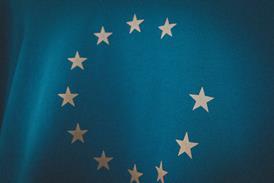Black Friday, the Friday after Thanksgiving in the U.S., has been considered the beginning of the American Christmas shopping season since 1952. Meanwhile, the phenomenon has spread globally, and with online shopping, Cyber Monday and Cyber Week have been added to the pre-Christmas shopping extravaganza all around the world.
No matter, whether it’s Black Friday or Cyber Monday, more and more outdoor brands are meanwhile arguing that discounts inspire needless purchases and fill up landfills, trying to steer consumers away from commerce on these bargain days and toward environmentalism. Five years ago, the U.S. retailer REI was one of the first outdoor companies to take action by closing its stores on Black Friday and encouraging buyers and employees to opt for a 52-week action plan with “small steps” to reduce CO2 emissions and make life more energy-efficient. This year, REI stuck to its decision, closed its doors, and brought back the #OptOutside campaign. But REI is by far not the only company that is moving in this direction. Here are some examples:
Fjällräven USA gave away 1,500 annual passes to U.S. National Parks. All branches of the German outdoor retail chain Globetrotter Ausrüstung, which, like Fjällräven, is part of the Fenix Outdoor International group, invited consumers to a “Workshop Day” on Black Friday, which was all about product care, do-it-yourself tips and repairs to extend the lifespan of outdoor gear and apparel.
Osprey, the American brand of backpacks, launched its very own Green Friday by partnering with the World Land Trust to plant two trees for every order placed on ospreyeurope.com between November 29 and December 6.
Isbjörn of Sweden began, for the first time, renting its products online to promote the reuse of garments and lower the price barrier to high-quality skiwear. In Sweden, as well as internationally, feedback regarding the campaign was positive. An Isbjörn representative told us they expect a growing number of users in the coming months, as the service will only start with products for the spring/summer 2020 season. The delivery of the products will begin at the end of January 2020; six-month rental cycles will begin on March 1 for spring/summer and on Oct. 1 for autumn/winter. Isbjörn has not yet said precisely when the planned extension of the service to other markets will take place.
The North Face, which joined the European Outdoor Conservation Association (Eoca) earlier this year, donated one euro for each purchase made during the Black Friday weekend in three countries – Germany, Italy and the U.K. – to its own “Explore Fund,” which promotes diversity for the enjoyment of nature among young people all over Europe. The fund currently concentrates on actions in those three countries, but it will be rolled out across Europe.
Salewa also supported Eoca. Three percent of the online and retail sales from Nov. 29 to Dec. 1 were donated to the “Plastic Free: Mountain to Sea” project for the second consecutive year.
La Sportiva announced that it would give 20 percent of its proceeds from the sale of its products at its online and offline stores during the Black Friday weekend to Eoca. The daily split in the resulting sales was significantly higher than average, leading the Italian company to donate €4,400 to Eoca.
Since 2016, Haglöfs of Sweden has been calling Black Friday “Green Friday.” It temporarily doubled prices at its brand stores in Stockholm, Gothenburg, Åre, Helsinki and Oslo and donated the proceeds to Naturskyddsföreningen, the Swedish conservation society. The webshop was taken offline worldwide that day.
Also on Black Friday, Patagonia committed to match individual donations made anytime from Nov. 29 to Dec. 31 up to a $10 million limit. On Dec. 17, Patagonia announced that its community raised $10 million in donations to 1,043 grassroots environmental organizations in 17 days. Donations were made through Patagonia Action Works, a platform that connects individuals with local grassroots organizations to take action on the most pressing issues facing the world today. In the U.S., environmental non-profits receive only three percent of philanthropic giving, yet climate change is the biggest existential threat. In addition to the $10 million donation match, Patagonia will donate, as it has for more than 30 years, one percent of its 2019 sales to nearly 1,200 grantees. To date, the company has donated more than $110 million (€98.9 million) to non-profits working on environmental problems facing communities and the planet.
In France and Belgium, the Green Friday Initiative, born three years ago in France, has gathered around 400 companies from all sectors into a movement for responsible consumption. Participating retailers and brands encourage people to reduce, reuse, recycle and repair instead of giving in to the intoxication of discount shopping. Also in France, environmental activists blocked an Amazon warehouse near the capital as part of several “Block Friday” protests. Meanwhile, the French government has announced that it will discuss the future of Black Friday at a legal level. An amendment presented by former the former minister of the environment Delphine Batho could lead to Black Friday deals being considered a special sale, strictly regulated and limited to only two six-week periods in winter and summer. This could pave the way for a ban of Black Friday advertising in France.
Rossignol launched its White Friday campaign for the week starting on Nov. 28 and committed to donating 10 percent of all worldwide sales online and in its own stores to Protect our Winters (POW), the leading voice of the snow sports industry in the fight against climate change. A new British retailer of outdoor clothing, Latitude, was similarly running a White Friday promotion during the same days, pledging to donate £5 (€5.87-$6.52) from every purchase to POW. Burton Europe raised €92,793, also for POW. From Nov. 28 to Dec. 2, 15 percent of sales from the brand’s webshop and selected Burton stores went to POW, and €5 on each Burton newsletter subscription was donated. The brand also ran several #doitforPOW events in their stores in Innsbruck, Munich, Zurich, Helsinki and Milan, promoting the protection of climate instead of consumption.
The German sports and outdoor manufacturer Ortovox took the company’s own webshop offline on Black Friday to draw attention to environmental issues. In addition, the company management asked its employees to attend climate protests, a measure that the German outdoor supplier Vaude also encouraged its employees to take.
After all, this year’s Black Friday coincided with another mass gathering that is heading in exactly the opposite direction: the fourth International Climate Action Day. Hundreds of thousands of people worldwide took the opportunity to demonstrate for effective climate-protection policy in over 100 cities. Not only did Action Day fall on Black Friday, but it was also the Friday before the beginning of the World Climate Conference in Madrid. In the eyes of activists, it was the perfect day to draw attention to over-consumption and its impact on the environment. Many of the strikes were led by students as part of the Fridays for Future movement founded by the Swedish activist Greta Thunberg.










